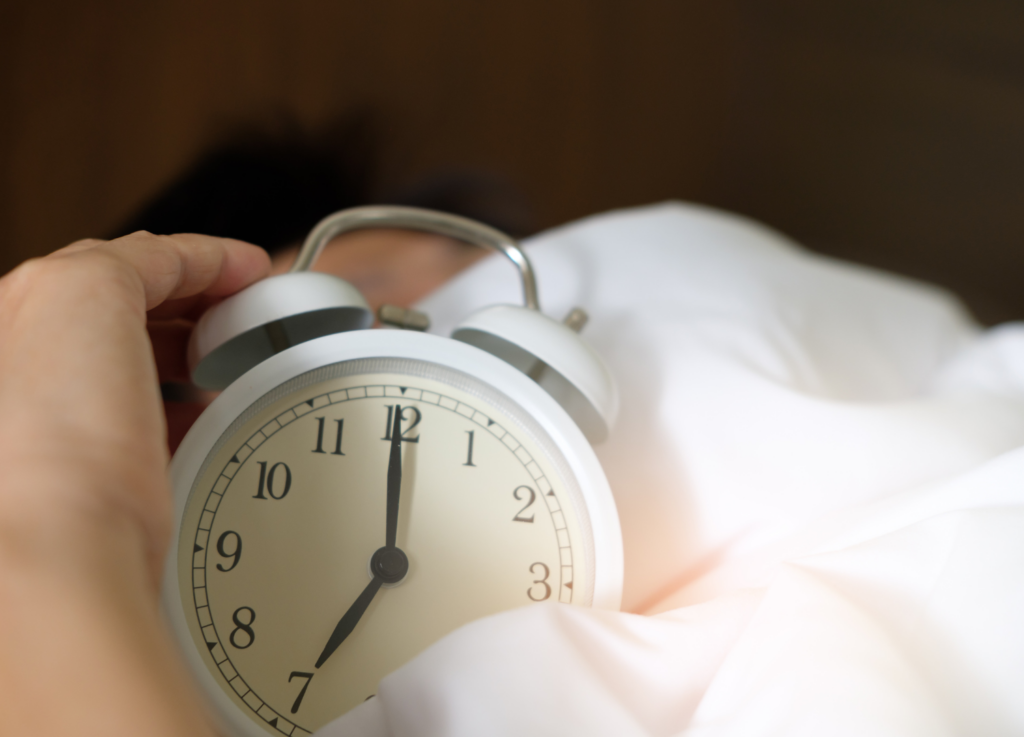Sleep deprivation is a KILLER. It increases our cortisol levels, heightening stress and anxiety. It impairs memory and concentration. And it also makes it harder to shift focus from repetitive negative thoughts or rumination. This creates a vicious “sleep-stress cycle,” where stress and overthinking disrupt sleep, and poor sleep leads to more stress.
Here are some simple strategies to break the sleep-stress cycle and get better sleep:
TURN OFF SCREENS AN HOUR BEFORE BED
Blue light from devices interferes with sleep by delaying melatonin release, making it harder to fall asleep. Additionally, scrolling through social media, binge-watching, or checking emails overstimulates the brain, preventing it from winding down.
TRY A GUIDED SLEEP MEDITATION
A 30-minute guided meditation before bed can calm the mind by shifting focus from stressful thoughts to relaxing imagery. Free resources are available on YouTube and apps like Insight Timer.

ESTABLISH A CONSISTENT SLEEP SCHEDULE
Going to bed and waking up at the same time every day helps regulate your body’s circadian rhythm, ensuring more consistent, high-quality sleep (ideally 7–8 hours).
ADOPT A GRATITUDE PRACTICE
Reflecting on positive aspects of your day helps us to feel content in our lives, reduces worry, and helps the body relax. If gratitude is part of a daily bedtime routine, it can signal to our body that it’s time to wind down.
LIMIT ALCOHOL CONSUMPTION
While alcohol may initially help us fall asleep, it disrupts deep sleep later in the night and increases the chances of waking for hydration or bathroom trips.
We’ve all experienced the stress-sleep cycle, where stress disrupts sleep, and poor sleep makes it harder to manage stress. We often don’t realize that our habits are working against us. Establishing healthy bedtime routines and sleep habits build mental resilience, helping you better handle the stressors of today’s world.

+ show Comments
- Hide Comments
add a comment